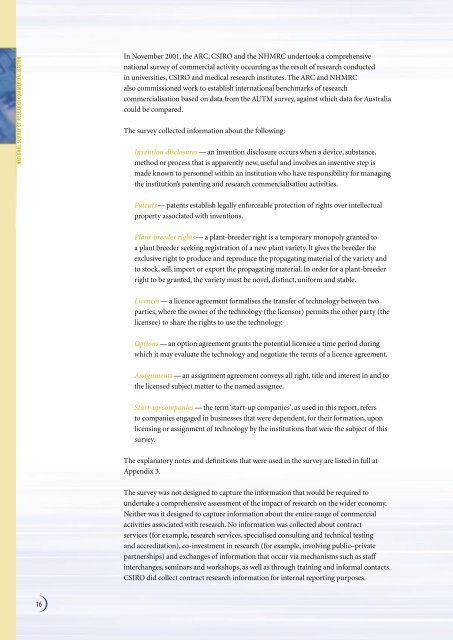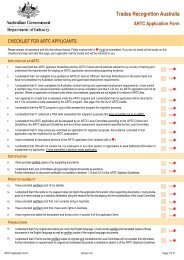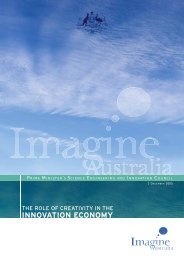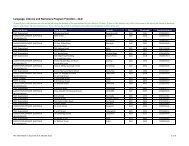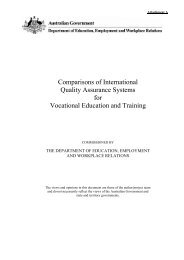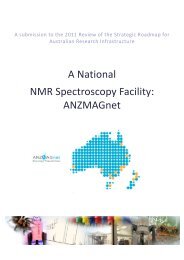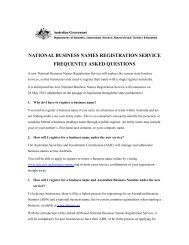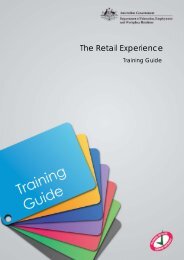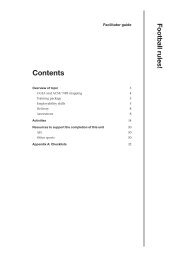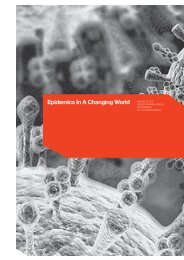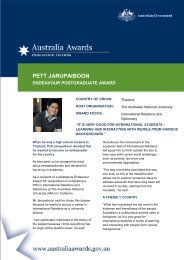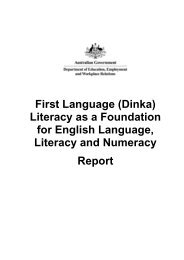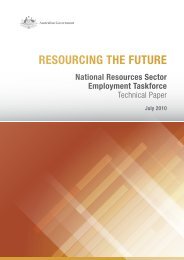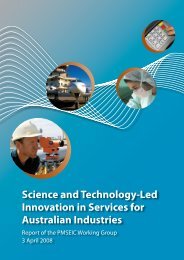National Survey of Research Commercialisation - Australian ...
National Survey of Research Commercialisation - Australian ...
National Survey of Research Commercialisation - Australian ...
Create successful ePaper yourself
Turn your PDF publications into a flip-book with our unique Google optimized e-Paper software.
NATIONAL SURVEY OF RESEARCH COMMERCIALISATION<br />
In November 2001, the ARC, CSIRO and the NHMRC undertook a comprehensive<br />
national survey <strong>of</strong> commercial activity occurring as the result <strong>of</strong> research conducted<br />
in universities, CSIRO and medical research institutes. The ARC and NHMRC<br />
also commissioned work to establish international benchmarks <strong>of</strong> research<br />
commercialisation based on data from the AUTM survey, against which data for Australia<br />
could be compared.<br />
The survey collected information about the following:<br />
Invention disclosures — an invention disclosure occurs when a device, substance,<br />
method or process that is apparently new, useful and involves an inventive step is<br />
made known to personnel within an institution who have responsibility for managing<br />
the institution’s patenting and research commercialisation activities.<br />
Patents — patents establish legally enforceable protection <strong>of</strong> rights over intellectual<br />
property associated with inventions.<br />
Plant-breeder rights — a plant-breeder right is a temporary monopoly granted to<br />
a plant breeder seeking registration <strong>of</strong> a new plant variety. It gives the breeder the<br />
exclusive right to produce and reproduce the propagating material <strong>of</strong> the variety and<br />
to stock, sell, import or export the propagating material. In order for a plant-breeder<br />
right to be granted, the variety must be novel, distinct, uniform and stable.<br />
Licences — a licence agreement formalises the transfer <strong>of</strong> technology between two<br />
parties, where the owner <strong>of</strong> the technology (the licensor) permits the other party (the<br />
licensee) to share the rights to use the technology.<br />
Options — an option agreement grants the potential licensee a time period during<br />
which it may evaluate the technology and negotiate the terms <strong>of</strong> a licence agreement.<br />
Assignments — an assignment agreement conveys all right, title and interest in and to<br />
the licensed subject matter to the named assignee.<br />
Start-up companies — the term ‘start-up companies’, as used in this report, refers<br />
to companies engaged in businesses that were dependent, for their formation, upon<br />
licensing or assignment <strong>of</strong> technology by the institutions that were the subject <strong>of</strong> this<br />
survey.<br />
The explanatory notes and definitions that were used in the survey are listed in full at<br />
Appendix 3.<br />
The survey was not designed to capture the information that would be required to<br />
undertake a comprehensive assessment <strong>of</strong> the impact <strong>of</strong> research on the wider economy.<br />
Neither was it designed to capture information about the entire range <strong>of</strong> commercial<br />
activities associated with research. No information was collected about contract<br />
services (for example, research services, specialised consulting and technical testing<br />
and accreditation), co-investment in research (for example, involving public–private<br />
partnerships) and exchanges <strong>of</strong> information that occur via mechanisms such as staff<br />
interchanges, seminars and workshops, as well as through training and informal contacts.<br />
CSIRO did collect contract research information for internal reporting purposes.<br />
16


